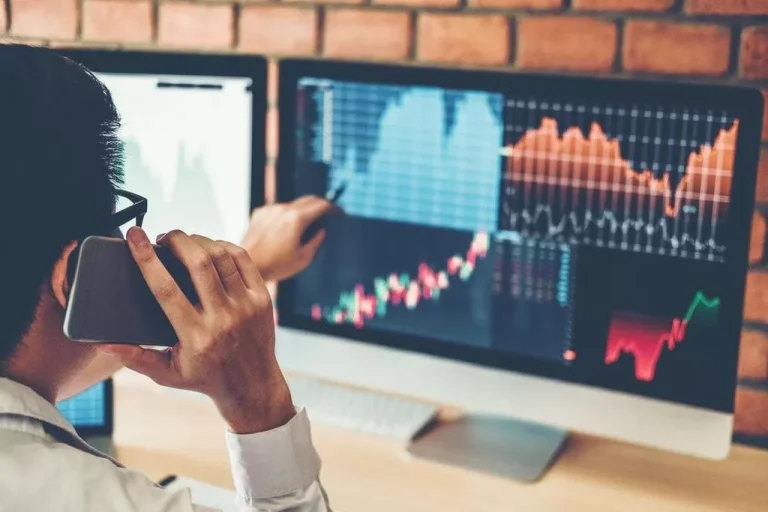For occasion, a mutual fund looking to acquire a substantial variety of shares can save millions by executing trades in a dark pool quite than on a public change, where prices may spike because of visible giant orders. Stocksphi offers tailor-made options to capitalize on these cost efficiencies, enhancing the general dark pool meaning return on funding for its purchasers. Dark swimming pools utilize superior price discovery mechanisms to determine the optimal price for giant trades. Unlike public exchanges where prices are influenced by seen order flows, darkish pools rely on sophisticated algorithms and inner matching methods. Imagine if there was a undisclosed location where you can sell your goods quietly with out saying it to everyone.

H2: Superior Price Discovery Mechanisms
The given facet helps in preventing devaluation of heavy costs –which may occur in any other case. While the regulatory frameworks within the US, the UK and Singapore share widespread aims of sustaining market integrity, there are variations in particular provisions and enforcement mechanisms. For instance, the US emphasises pre-trade verification of securities availability, whereas the UK focuses on post-trade disclosure of quick positions. Singapore’s framework emphasises real-time monitoring and reporting to ensure timely regulatory oversight.

Exploring Hidden Buying And Selling Practices: Darkish Pools And Market Manipulation! (part

Also often recognized as “dark pools of liquidity,” dark swimming pools have been originally designed to accommodate massive patrons and sellers ready and keen to commerce massive blocks of shares with out inflicting the market to move in opposition to them. The goal was for this liquidity to provide smoother trading and mitigate large worth swings or market dislocation. The lack of transparency can even work towards a pool participant since there isn’t any assure that the institution’s commerce was executed at one of the best worth. A surprisingly massive proportion of broker-dealer darkish pool trades are executed inside the pools–a course of that is called internalization, even when the broker-dealer has a small share of the U.S. market. The dark pool’s opaqueness also can give rise to conflicts of curiosity if a broker-dealer’s proprietary traders trade towards pool shoppers or if the broker-dealer sells particular access to the darkish pool to HFT corporations.
Why Do Institutional Traders Prefer The Third Market?
Stocksphi provides complete danger management options, ensuring that shoppers can commerce confidently in darkish pools. For instance, in 2014, Barclays was fined by the SEC for misleading buyers in regards to the degree of transparency and safety provided by its dark pool. Stocksphi excels in minimizing market impact via its superior strategies and instruments, ensuring that large trades are executed discreetly and effectively.
Is The Third Market A Part Of The Secondary Market?
Dark pools had been created so as to facilitate block buying and selling by institutional traders who didn’t want to influence the markets with their giant orders and acquire adverse prices for his or her trades. SOR also makes use of routing order slicing, venue prioritisation, order type selection, time weighting, and risk tolerance to customize routes primarily based on the dealer’s preferences and aims. By leveraging SOR technology, traders can access a number of liquidity swimming pools, optimise commerce execution, reduce market influence, and obtain higher execution costs. Dark swimming pools provide vital benefits for institutional buyers by offering anonymity, decreasing market influence, and enhancing cost effectivity.
How Do You Close Out Your Sor Orders In Case Of Intraday Trades?
Despite these challenges, darkish pools stay an important device for large-scale investors, and Stocksphi offers cutting-edge methods to navigate these waters effectively. By using Stocksphi’s providers, merchants can mitigate risks whereas reaping the benefits of nameless buying and selling. Furthermore, in an effort to stop market manipulation, authorities such because the SEC have put in place laws like Regulation SHO, which require firms to find and ship shares previous to short promoting.
Who’s A Qualified Third Market Maker?
In reality, dark swimming pools are legal and totally regulated by the Securities and Exchange Commission. Dark pools permit merchants to make block trades with out having to publicize the buy/sell value or the variety of shares traded to the public. Another significant advantage that the third market presents institutional investors is the aspect of anonymity. Not all institutional buyers desire their investment actions to be publicly disclosed.
Agency Broker Or Exchange-owned Darkish Pool
Instead, he believes they should take a glance at the entire marketplace, together with the place where buying and selling volumes have elevated essentially the most in latest times. Post-trade transparency refers again to the disclosure of trade details after a transaction has been executed. In darkish swimming pools, reaching a steadiness between transparency and anonymity is crucial. In a typical public change, the details of enormous trades can quickly become seen, prompting other merchants to react, which may lead to unfavorable worth movements. Dark pools, nonetheless, preserve the confidentiality of both the trade dimension and the identities of the merchants involved. They are used for giant trades that could cause plenty of chaos if accomplished in public.
As for the unique concern of firm bosses creating a man-made market of their stocks, over-regulation is not an alternative alternative to muscular surveillance and supervision. It’s time India took a more relaxed strategy to what goes on in the quieter corner upstairs. It is a reasonable demand, although in accordance with Indian media reviews, the securities board has asked the association to indicate proof that others are using asset managers’ buy intentions to front-run a inventory. In one of many few studies on block trades executed on the main trade display screen, two professors at the Indian Institute of Management in Ahmedabad found that prices start rising 8 minutes earlier than a big purchase order hits the market. In the grab-and-run melee that ensues, large patrons encounter 70% to 80% slippage—orders not getting filled.
With Stocksphi’s professional steerage, traders can obtain optimum pricing for his or her transactions, minimizing costs and maximizing returns. By exempting market makers from sure short-selling laws, India can take an analogous tack to Australia. By enabling them to short-sell on recognised exchanges, liquidity would be maintained together with strengthening the resilience and stability of the market. In this regard, SEBI may take into account the prospect of integrating regulatory compliance instruments, similar to wizards or checklists, into trading platforms. By offering real-time monitoring and reporting capabilities, these applied sciences can help regulatory our bodies higher handle market compliance ranges.
The third market allows them to maintain up anonymity whereas making substantial investments or divesting their holdings. In fact, the extent of anonymity in the third market is so high that neither the client nor the seller can verify each other’s identification. This ensures a high level of confidentiality and discretion, making the third market an attractive selection for institutional buyers seeking privateness of their transactions.
- The institutional vendor has a better chance of finding a buyer for the complete share block in a dark pool since it is a discussion board dedicated to massive investors.
- Roughly a third of buying and selling takes place off the public exchanges, on venues like darkish swimming pools that match trades in secret up until the purpose they’re accomplished.
- When an institutional investor locations a massive order on a public change, it can drive the inventory worth up or down, alerting different market participants and resulting in suboptimal costs.
- Without the presence of third markets, executing substantial trades in the secondary market could result in increased volatility and potential disruptions in inventory prices.
- As a result, dark swimming pools don’t contribute to the public “price discovery” process till after trades are executed.
As of the tip of December 2022, there have been more than 60 darkish swimming pools registered with the Securities and Exchange Commission (SEC). There are three types, including broker-dealer-owned dark swimming pools, agency broker or exchange-owned dark swimming pools, and digital market markers dark pools. Dark swimming pools are sometimes solid in an unfavorable mild however they serve a objective by allowing large trades to proceed without affecting the broader market. However, their lack of transparency makes them weak to potential conflicts of curiosity by their homeowners and predatory trading practices by some high-frequency traders. A big selection of exchange-listed securities, together with stocks, bonds, and other financial devices, may be traded within the third market.
They can also help buyers navigate the disclosure process and make sure they understand and abide by the requirements. This gleaming and dazzling world of finance is has been captivating traders attention for many years now. Today, let’s explore the tunnel that leads to understanding darkish pools and the way markets may be influenced. In a dark pool, consumers and sellers can anonymously place their orders with out revealing their identities or the small print of their trades to the basic public. The darkish pool operator then matches these orders, executing trades off the publicmarket and away from prying eyes.
The rule would require brokerages to send client trades to exchanges quite than dark pools except they will execute the trades at a meaningfully better value than that available in the public market. If implemented, this rule could current a severe challenge to the long-term viability of darkish pools. The recent HFT controversy has drawn significant regulatory attention to dark pools. Regulators have usually viewed darkish pools with suspicion because of their lack of transparency. One measure that may help exchanges reclaim market share from darkish swimming pools and different off-exchange venues might be a pilot proposal from the Securities and Exchange Commission (SEC) to introduce a trade-at rule. The availability of a separate market for bulk offers helps alleviate the pressure on the secondary markets, guaranteeing a smoother flow of trades and sustaining market stability.
Smart order route configurations refer to the settings, preferences, and parameters that a trader can customise within the smart order routing system. These configurations are flexible and could be adjusted to satisfy a dealer’s particular aims and preferences. Cboe, Nasdaq and NYSE have all nabbed the regulator’s attention in current months for his or her market knowledge and trade fees.
Read more about https://www.xcritical.in/ here.
Be the First to Comment!
You must be logged in to post a comment.
You must be logged in to post a comment.